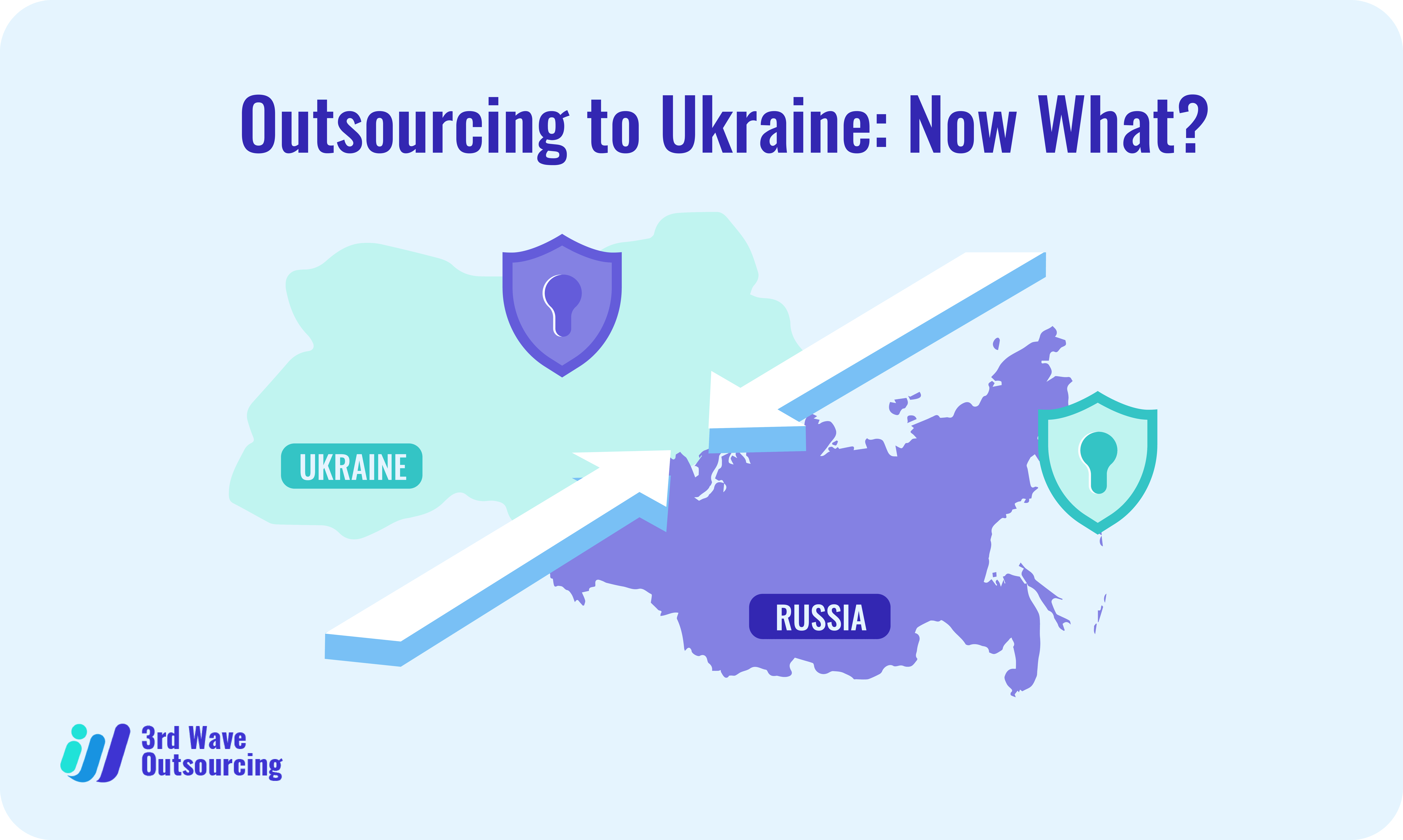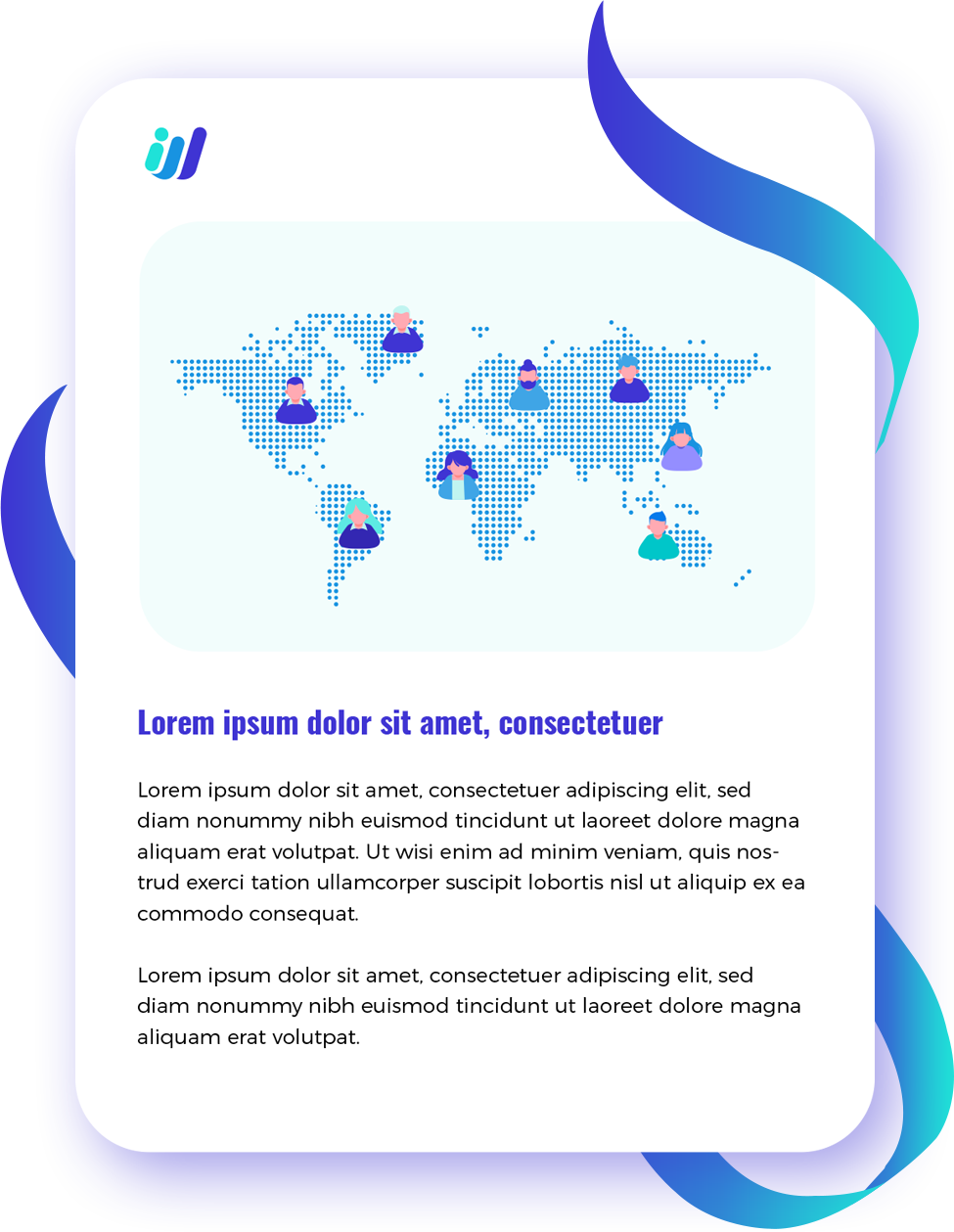Outsourcing to Ukraine is something technology giants such as Magento, Google, and Huawei have in common. Each has its own offshore research and development (R&D) centers in Ukraine and relies on a diverse team of Ukrainian developers and engineers to manage various IT needs. According to the IT Ukraine Association, the country’s IT exports have surpassed $5 billion in 2020, an increase of 20% over the previous year.
Facts and Statistics About Ukraine’s IT Outsourcing Industry
Given the worldwide developments brought about by COVID-19, the Ukrainian information technology industry has the ability to assist businesses in coping with the software engineer shortage and new problems posed by the pandemic:
“Despite a challenging year, information technology exports climbed dramatically. For long-term export growth, it is critical to prioritize human capital development. It should be handled through education (training new specialists) and advantageous immigration laws (to recruit foreigners),” said Igor Samohodskyy, BRDO’s head of the ICT sector.
According to Katie Gove, an analyst at research firm Gartner Inc., Ukraine has between 85,000 and 100,000 export service employees, the majority of whom work in software engineering and other information technology services.
Ukraine is a talent hotspot, she explained, in part because of its excellent academic background, which fosters software engineering and application development abilities.
Several technology businesses, including Germany’s SAP SE and London’s Revolut Ltd., as well as Israel’s Fiverr International Ltd. and website design and development platform Wix.com Ltd., have stated that they employ individuals in the region.
- Ukraine is one of Gartner’s top 30 IT outsourcing destinations.
- IT exports increased by $843 million, or more than 20%, in 2020.
- Microsoft, eBay, Apple Inc., and Skype, among others, are reaping the benefits of IT outsourcing to the country.
- The country boasts over 212,000 IT experts, making it a significant source of tech talent. Over 60% are employed by Ukrainian IT outsourcing organizations.
- Ukraine’s software R&D and IT services markets, as well as those in other countries such as Poland and Romania, are growing at a rate of 4-5 times than that of the rest of the globe, with the EU and the US as their primary consumers.
- Many countries will continue to outsource IT to Ukraine due to the country’s lenient tax regime for startups, putting up branches in key Ukrainian technology hubs such as Kyiv, Dnipro, and Lviv.
- Ukraine was selected the GSA’s Offshoring Destination Of The Year in the United Kingdom.
- According to Ukraine Invest, approximately one hundred Fortune 500 corporations who formerly outsourced IT services to Israel or India are now outsourcing to Ukraine.
- Ukraine is home to over 4000 technology enterprises and over 1,500 software development centers.
- There are more than 2,000 startups in Ukraine and the most well-known among them are Ajax, DepositPhotos GitLab, Grammarly, and Preply.
Russia’s Invasions Impacts Booming Tech Outsourcing Sector
According to a monitoring dashboard maintained by the Georgia Institute of Technology, internet failures occurred across the country following Russia’s attack. “The crisis is going to have major ramifications because Ukraine is obviously a huge country, a massive IT delivery nation,” according to Kerry Hallard, chief executive of the Global Sourcing Association, a trade association located in the United Kingdom.
“Today is a dark day for all of us. The attack on Ukraine represents a turning point in Europe; a war was simply unthinkable for many people, especially the younger generations,” Christian Bruch, chief executive of Siemens Energy AG, told shareholders at their annual meeting.
Gartner said that companies that have outsourced talent to Ukraine have developed a sense of dependence on these service providers. Numerous businesses are likely to have planned for the impact of Russia’s activities by relocating projects to teams in other countries mainly. Still, these organizations are worried that the security of certain technical resources, such as code, designs, and documentation, will still be compromised.
There are also uncertainties about a variety of issues, including the magnitude of Russia’s incursion and the scope of any subsequent sanctions. Western countries have committed to imposing sanctions on Russia that will restrict the sale of critical technology, harm the country’s banking sector, and target the country’s largest firms and affluent individuals. These developments could potentially have a negative impact on Western enterprises who have joint ventures with or stakes in Russian firms.
Cybersecurity Risks of an Escalating Russia-Ukraine Conflict
Russia’s formidable cyber forces, which are ready to launch a fresh round of cyber-attacks against Ukrainian and western energy, finance, and communications infrastructure, are not as visible as its armed forces which only means one thing: the cyber threat will likely grow rather than diminish.
Conflict in Ukraine — whether conventional, cyber, or hybrid — will have ramifications for business far beyond the region’s boundaries. As a business leader, you’ve probably already determined whether there are any risks to people, processes, or supply chains. The White House recently warned of supply chain vulnerabilities caused by the United States chip industry’s reliance on neon sourced from Ukraine. Additionally, Russia exports a variety of vital components used in the production of semiconductors, jet engines, vehicles, agriculture, and pharmaceuticals, as highlighted in a Twitter thread by former Crowdstrike CTO Dmitri Alperovitch. Given the already-stressed supply lines in the United States as a result of the Covid-19 outbreak, adding another shock to the system is concerning.
However, if you are only now assessing your cyber posture, it is probably too late. Effective cyber defense is a protracted game that requires persistent strategic investment, not a spur-of-the-moment addition.
Ukraine’s conflict poses possibly the most serious cyber threat that the United States and western firms have ever faced. Russia’s invasion would result in the most severe sanctions ever imposed on Russia, which regards such measures as economic warfare. Russia will not remain silent but will retaliate asymmetrically through the use of its formidable cyber power.
Final Thoughts
With the threat of war in Europe looming, corporate resilience and business continuity plans become paramount. But don’t let your business suffer. Work with global top talents in countries with political and economic stability and most importantly, strong data privacy laws. Look into Third Wave Outsourcing to help you harness the benefits of outsourcing.


